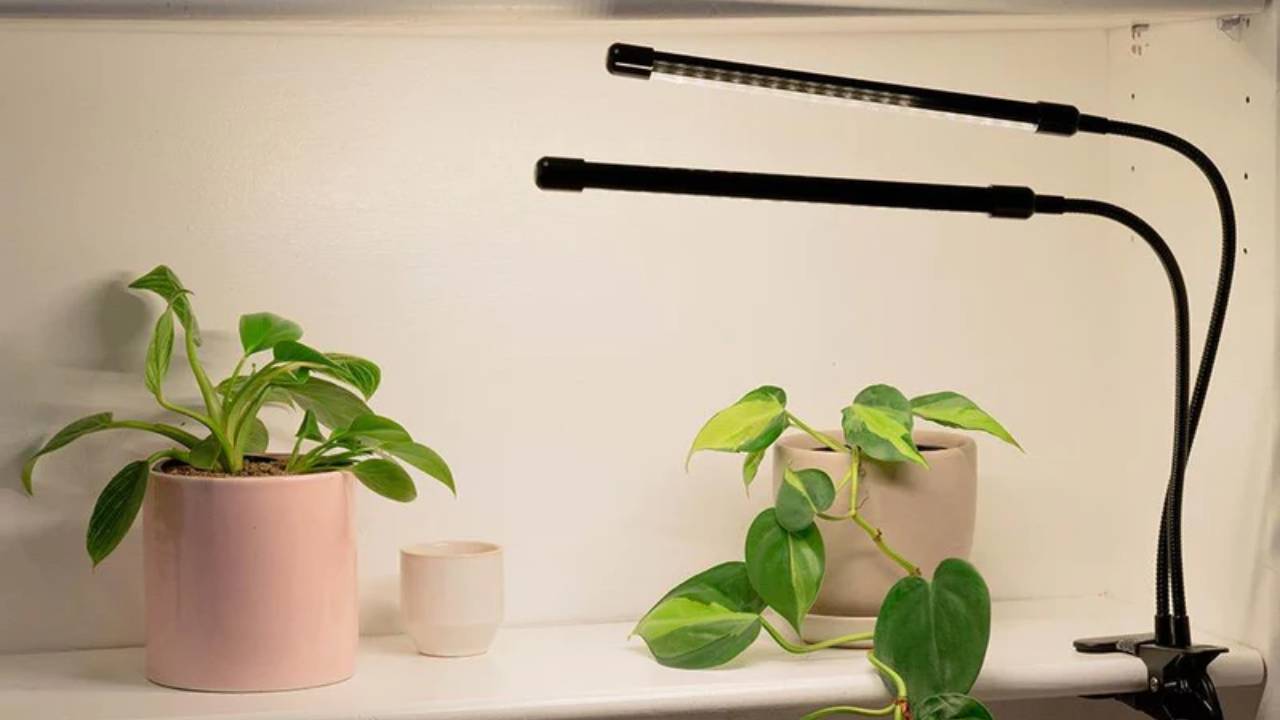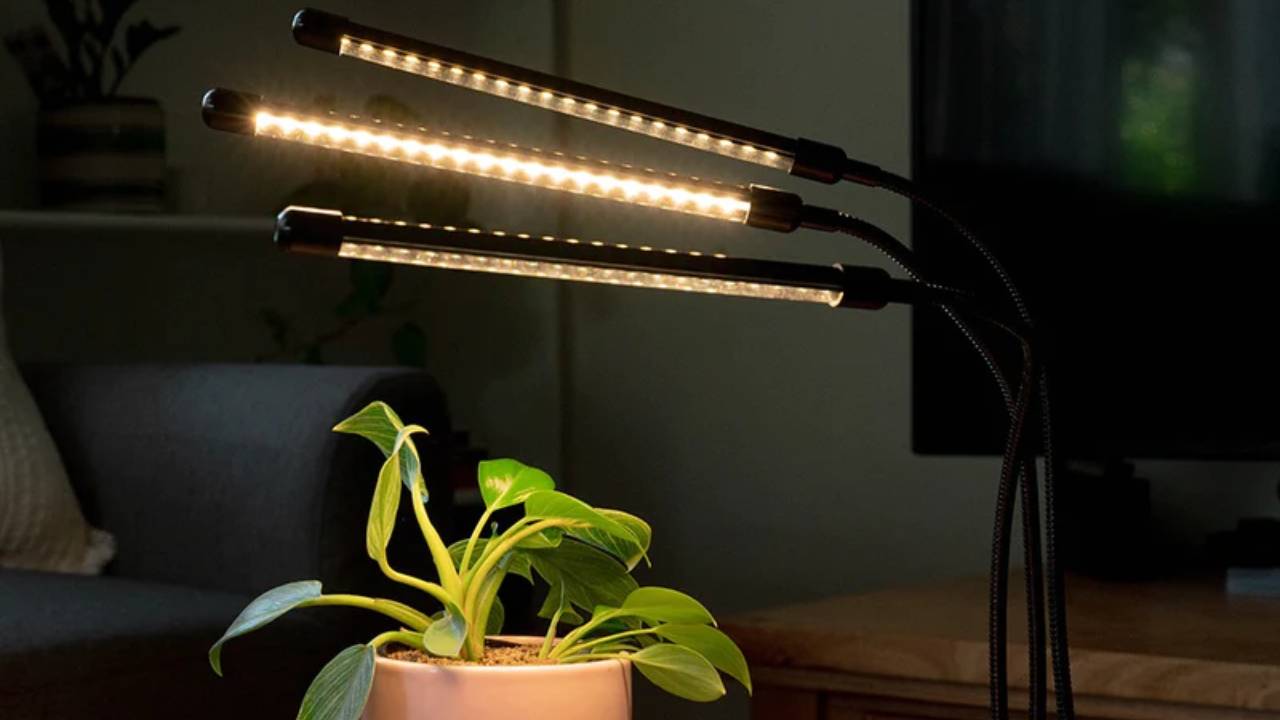This is the secret to keeping your houseplants alive in the colder months
How to keep your houseplants alive using LED grow lights


The leaves are falling, the chill is here and summer clothes have quickly been packed away, which means we’re officially into the colder months of the year. But as the mornings and evenings start to get darker, your houseplants tend to suffer due to the lack of sunlight.
Let’s be honest, growing houseplants and keeping them alive can be tricky even in the best conditions. But when the weather turns, indoor houseplants can turn quickly, even if you’ve positioned them as close to natural light as possible and have given them plenty of water.
A handy trick to keep your houseplants alive and thriving is by investing in an LED grow light. Grow lights are electric lights that provide a light spectrum tailored to the plants’ needs or mimic the sunlight and outdoor conditions. The intensity and brightness levels of grow lights are what help plants to grow, even if they’re sitting in a dark room.
Using artificial lighting like the best smart bulbs or LED grow lights is a simple way to care for your plants in any type of lighting situation and environment. If the type of plant you have benefits from more intense light, grow lights can be a good solution, and if you’re growing seedlings early in the year, they can help with growing stronger plants.
To keep your plants alive this autumn/winter, here’s what you should consider when buying a grow light and how to use them in your home.
What to consider when buying an LED grow light
When choosing a grow light, you need to choose a specialised plant light, as standard light bulbs aren’t bright enough to grow plants and not as energy efficient.
Firstly, the LED grow light you choose will depend on the type of plants you have. Some plants need more light than others, whereas some might need different intensities and colours. Before you choose a grow light, make sure to research your plant before buying one.
Get all the latest news, reviews, deals and buying guides on gorgeous tech, home and active products from the T3 experts
Next, you want to look for bulbs or strips that offer a full light spectrum. Plants mostly absorb blue and red light to grow as these lights stimulate growth and flower production. The LED grow light or T5 HO fluorescent tubes (most horticulturists and garden centres offer these) should be long-lasting and energy efficient. As the light they emit is so bright, you want a bulb that has low operating temperatures and as you might want to use them for several hours, you don’t want to run up your electricity bill. The bulb or light strip you choose also shouldn’t give out excess heat as this can damage some plants.
You can find LED grow lights on Amazon but a particular favourite is Gathera grow lights. Gathera offers full spectrum, red/blue LED and entire shelf setups!

How to use an LED grow light
Once you’ve bought an LED grow light, it’s time to set up your plant station. Make sure to read the instructions before you get started, but in general, you need to focus on how you’re positioning your light and how long you leave it on for.
For LED grow lights, your light bulb, strip or lamp should be around 12-30 inches away from the plant’s soil. The light should fully cover your plant to help them grow better and stronger, but if your plant isn’t properly covered by the light, you should rotate the plant regularly so they get even coverage.
LED grow lights can be left on for several hours, which is what plants need to grow properly. Plants need to rest too, so your grow light shouldn’t be on all day. According to Urban Leaf, grow lights can be in use for 14-16 hours a day to keep your houseplants growing and flowering. Other sources say to minimise the length of time to 12 hours when your plant starts to flower.
If your houseplant is fully grown (meaning it’s not a sapling), this is the best way to use a grow light. But if you’re trying to grow a plant from seedlings, you should start using the light when they’ve come out of the soil.
For more growing advice, here are 5 low maintenance houseplants that anyone can keep alive!

Beth is Home Editor for T3, looking after style, living and wellness. From the comfiest mattresses to strange things you can cook in an air fryer, Beth covers sleep, smart home, coffee machines, watches, grooming tools, fragrances, gardening and more.
In her spare time, Beth enjoys running, reading, baking and attempting craft projects that will probably end in disaster!